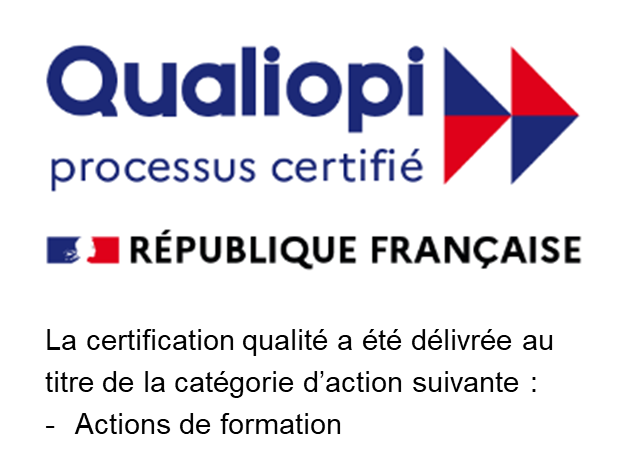WHAT'S THE ROI OF INTERCULTURAL TRAINING?

Why is Intercultural Training important?
Intercultural skills have been identified by researchers1 as a key competency for global organizations. Investing in intercultural training not only reduces the risk of a disastrous or brown out international assignment, but it also helps you to transform your managers into global leaders. Increasingly, more organizations choose to think strategically and recognize the business value of intercultural skills and cultural agility. These skills are the key enabling factor for working in global, diverse, and inclusive organizations. In addition, the experience of Covid-19 has revealed that organizations can quickly adapt to working virtually, but developing deeper relationships and trust, in the virtual environment, and across cultures are more challenging and not intuitive.
What’s the Return on Investment?
The return on investment (ROI) of your intercultural skills training couldn't be clearer. Developing the cultural agility of your employees drives greater productivity, improves team performance and leadership success, and provides a competitive advantage. These benefits have been backed up by numerous research and are related not only to your financial returns. You invest in your people and gain culturally intelligent global leaders with enhanced personal judgement, adaptability, better decision-making and problem-solving skills, cross-cultural trust-building and negotiation abilities, and leadership effectiveness. Moreover, intercultural training can prevent ‘cultural quiet quitting’ – a phenomenon where employees experience cross-cultural clashes, lose a sense of belonging and emotionally or intellectually engaged from their work, while still staying on a payroll. This has been estimated to cost an organization up to 34% of the employee’s salary2.
The risk of not investing in intercultural training is greater than the cost of it
· Loss of valued talent costs up to 200% of annual salary to replace3
· Lack of skills and poor communication – top reasons for project failure4
· Culturally unaware teams underperform others by up to 40%5
Almost every expat and person working across cultures has a story about an everyday interaction or experience that unexpectedly “went wrong”. And yet, there are those who believe that intercultural skills and knowledge are common sense, that you should be able to walk into a situation, observe the behaviors of those around you, and adapt accordingly. It isn’t that simple and here are the reasons why:
1. Language is an imperfect tool for communication
In the words of a writer, George Bernard Show, “the single biggest problem in communication is the illusion that it has taken place”. When communicating across cultures, our messages go through a number of cultural filters, we cannot guarantee that a listener interprets our message in the way we intended them to. That's why miscommunication happens, and it can have dangerous consequences.
2. Deep culture is invisible
Culture is not obvious, so it's easy to dismiss it as an important player in international collaborations. A cultural anthropologist, Edward T. Hall, famously said that “culture hides much more than it reveals, and strangely enough, what it hides, it hides most effectively from its own participants.” Intercultural skills training enables the participants to learn about themselves, the values, norms, and triggers behind their own behaviors. It also enables them to understand and empathize with the people they work with.
3. Experience isn’t an insight
People associate having intercultural experiences with understanding them. It is not the same thing. To put it another way, mere interaction with people from another culture does not necessarily lead to realizing the “why” behind their actions and reaction. Training helps employees adapt their communication style or adjust a strategy for a better outcome. That's a high-level skillset, and that skillset is the goal of intercultural training. According to interculturalist Craig Storti, “Intercultural experiences are opportunities to gain insight, but they should not be confused with insight”. Think about it – your business trip to another country may give you a better awareness of that country and culture on the surface but it will not help you build deep trust. This takes time and it takes cultural intelligence and agility to do it well.
4. People are not all the same
Many believe that on the surface people may be different but that underneath human beings are all the same. This belief loses value when people realize that surface behaviors reflect deep values and beliefs. It is true, of course, that people from different cultures are different and similar —because of cultural behaviors. Intercultural training offers people the chance to be professionally curious so that they don’t underestimate the impact of culture on working together and effective collaborations.
5. Intercultural skills training is not about do’s and don’ts
Some employees just want lists of cultural do’s and don’ts. It’s understandable, as people are nervous and don’t want to make mistakes. They think, mistakenly, that if they know what to do and what not to do in most common settings, they will get along. While there are some do’s and don’ts related to safety, there is a huge limitation of this approach to culture. Do’s and don’ts are a kind of generalization. A do in one context and can be don’t in another. Intercultural training enables a greater level of awareness and practical skills that can be applied to the participants contexts.
6. Much more than “just common sense”
If you feel that the content of intercultural training is “just common sense”, we encourage you to think again. If intercultural skills and knowledge were common sense, then we would not hear about so many cultural mistakes, from numerous organizations. Think of all the stories you have read and heard about how good intentions offend people without meaning to or even knowing it.
7. It’s not just about the employee
One of the top reasons that employees return home early from an assignment abroad is that their family can’t adjust to the host country. Some research even suggests that over 60% of early returns are due to lack of family adjustment. That’s why at NetExpat we fully customized programs designed to support the partners and spouses of mobile employees with their career and integration needs.
The best time to gain cultural agility is now
Cultural intelligence is an important predictor of an organization’s success5. The stars of the next decade will be defined by those who are able to attract, retain, and deploy their key talent globally in an environment where adaptability and change to a new normal remain constant. As your managers learn intercultural skills, they develop more efficient practices, they communicate better, they grow your business. This is how you become a culturally agile organization.
Gaining cultural agility is not as complicated as one may think. Firstly, the learning solution needs to be affordable and aligned with your business goals. At NetExpat we do this by conducting an exploratory call with you. Secondly, the learning content needs to be adapted to your employee’s needs – we do this by utilizing needs assessment questionnaires. Thirdly, the employees need to be willing and open to learn – which is guaranteed with our blended methodology of high-tech and high-touch, as well as a range of innovative tools and resources that make the learning journey insightful and engaging.
Share this post














